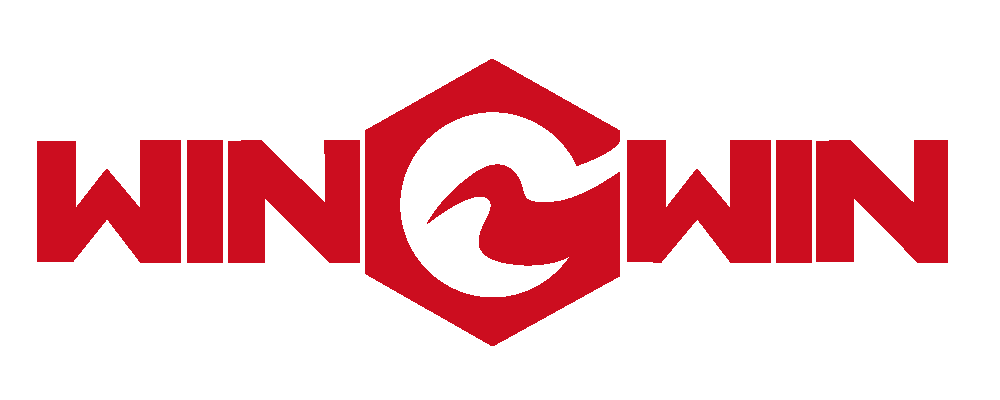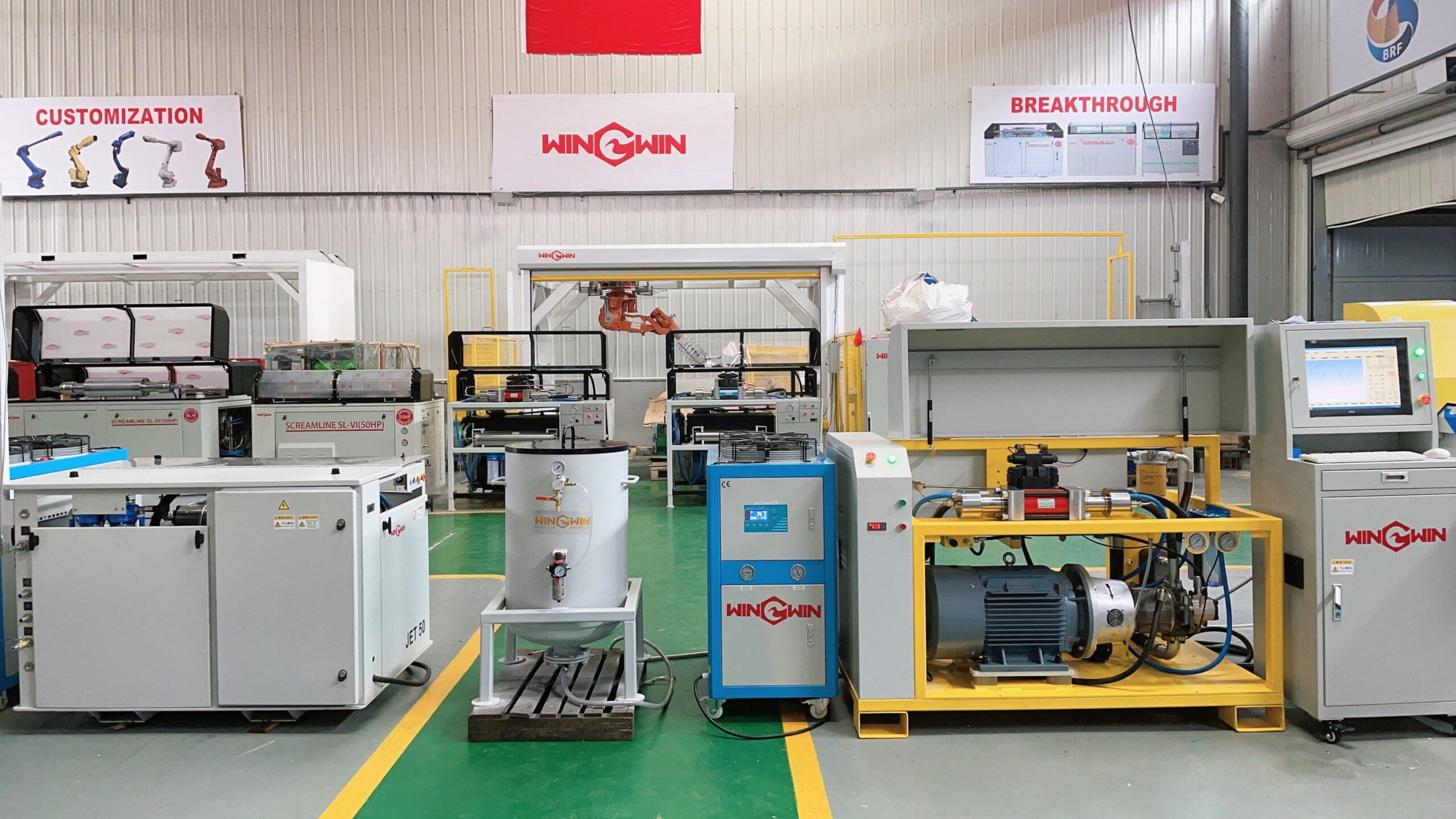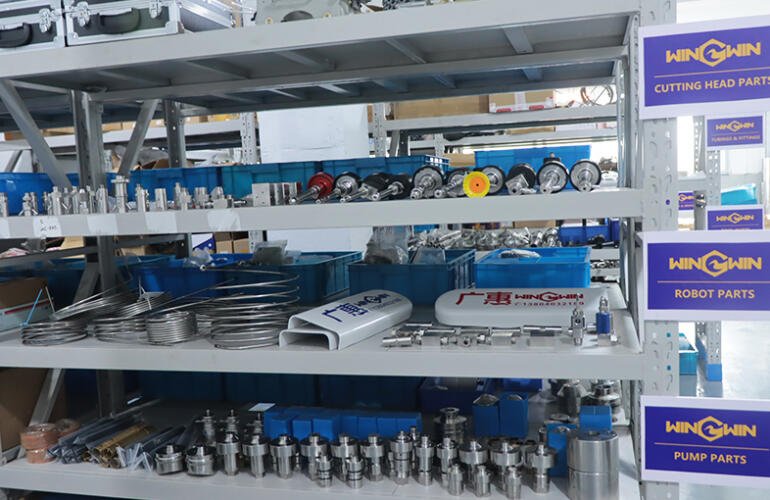Contenu
Coût de réduction du jet d’eau
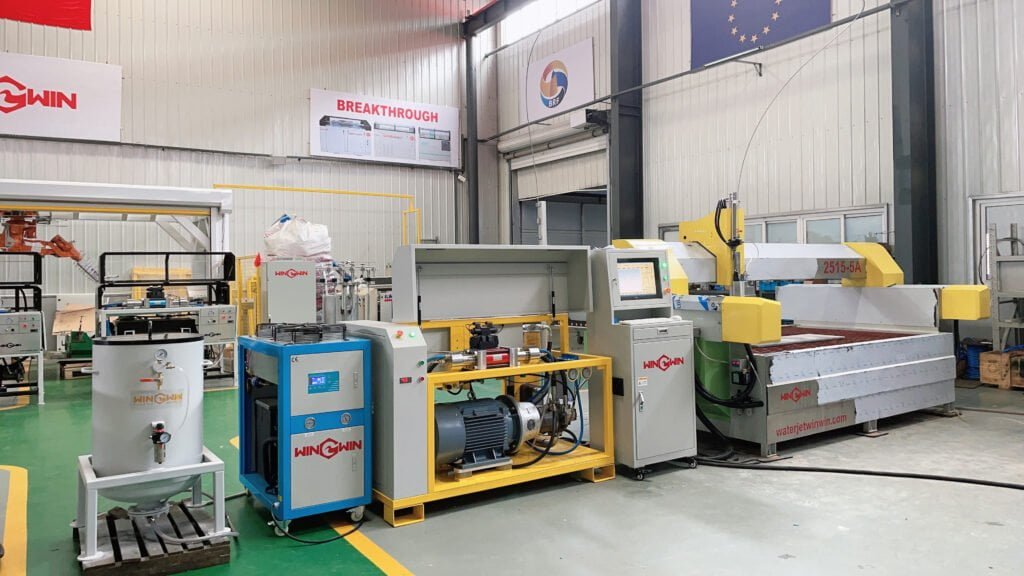
Many customers who have the need to buy waterjet cutting machines do not know much about waterjet cutting cost. Below we will introduce the factors affecting waterjet cutting cost and how to choose the machines. There are various factors that can affect the Coût de réduction du jet d’eau. These include:
– Size:
Water jets come in a range of sizes, from small tabletop systems to large industrial machines. The larger the machine, the higher waterjet cutting cost it tends to be.
– Type:
There are two main types of water jets – pure water jets and abrasive water jets. Pure water jets are typically used for cutting softer materials like foam or rubber, while abrasive water jets are used for harder materials like metal or stone. Abrasive waterjet cutting cost tends to be higher than pure water jets.
– Quality:
The quality of the machine can also impact the waterjet cutting cost. Higher quality machines may be more expensive upfront, but they may also be more reliable and require less maintenance over time.
– Features:
Different water jets come with different features, such as automatic material loading, software for programming and controlling the machine, and specialized cutting heads for specific applications. These features can increase the waterjet cutting cost.
Here are some rough estimates of the range of waterjet cutting cost:
– Small tabletop waterjet cutting costs are between $5,000 to $20,000.
– Mid-sized waterjet cutting costs are between $50,000 to $100,000.
– Large industrial waterjet cutting costs can reach upwards of $500,000 or more.
Facteurs supplémentaires affectant le coût de réduction du jet d’eau
The actual waterjet cutting cost will rest with the specific features and capabilities of the machine. Moreover, there may be ongoing waterjet cutting costs associated with operating the machine, such as electricity, water, abrasive materials, and maintenance. These costs will add up over time and should be factored into your budget when considering purchasing a water jet.
– Electricity:
Water jets require a significant amount of electricity to operate, so you’ll need to factor in the cost of electricity when budgeting for the machine.
– Water:
Obviously, water is a key component of a water jet, so you’ll need to have a good supply of water available. The cost of water will be different due to your location.
– Abrasive materials:
Abrasive water jets require an abrasive material, such as garnet or aluminum oxide, to cut through harder materials. These materials can be expensive and require to be refilled regularly.
– Maintenance:
Water jets need regular maintenance to keep them running at peak performance. This can include things like replacing worn parts and cleaning the cutting head.
It’s also essential to take into account your specific needs and budget. Some factors to consider include the size and thickness of the materials you’ll be cutting, the volume of work you’ll be doing, and the level of precision required. You may also want to consider whether you need additional features, such as automatic material loading or software for programming and controlling the machine.
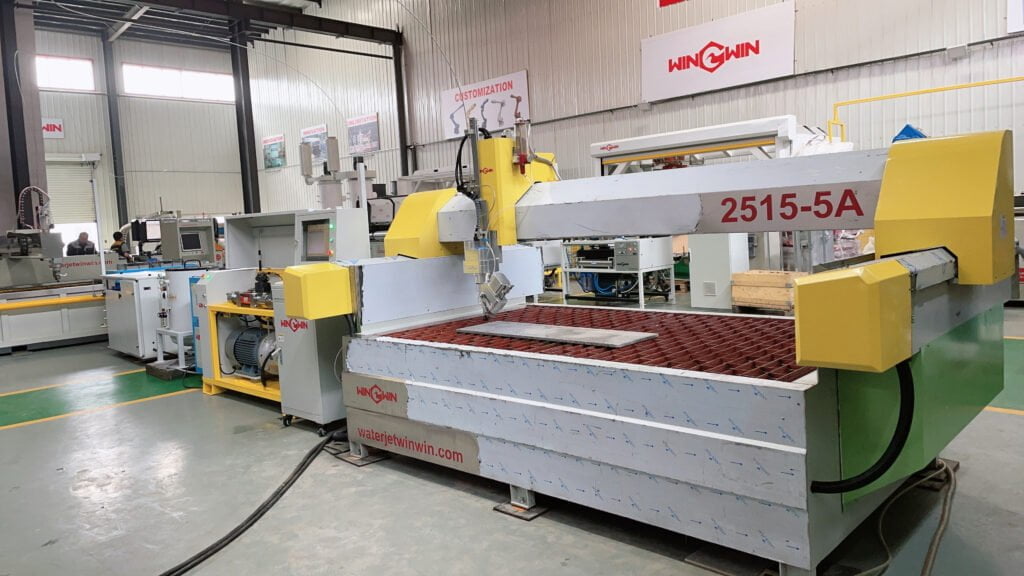
Coût de découpe au jet d’eau usagé
Furthermore, the waterjet cutting cost can vary depending on whether you purchase a new or used machine. Some factors that can have impact on a used waterjet cutting cost include:
– Age:
As with any piece of equipment, older water jets tend to be less expensive than newer ones.
– Condition:
A water jet that has been well-maintained and is in good working condition will likely be more expensive than one that has not been well-maintained or has mechanical issues.
– Features:
A used water jet with advanced features may be more expensive than one with more basic features.
You may also want to ask the seller for any available documentation, such as manuals, maintenance records, or warranty information. This can help you determine whether the machine has been well-maintained and is likely to perform well over time. As a general rule of thumb, used waterjet cutting costs can range from a few thousand dollars for older, more basic models to tens or even hundreds of thousands of dollars for newer, more advanced models. In addition to the machine itself, you also need to consider any additional costs associated with purchasing a used water jet. For example, you may need to pay for dismantling and transportation of the machine, installation, and any necessary repairs or upgrades.
When evaluating a used water jet, you should also consider any additional upgrades that may be available:
1. Chargement et déchargement automatiques du matériel:
This feature allows the machine to load and unload materials automatically, which can save time and increase efficiency, but it may not be necessary for all applications or budgets.
The difference of waterjet cutting costs between a water jet with and without automatic material loading and unloading hinges on the specific machine and its capabilities. In general, the waterjet cutting cost with automatic material loading and unloading can be anywhere from 10% to 30% higher than a similar machine without this feature.
Determining whether automatic material loading and unloading is necessary for your application will depend on several factors, including the type and volume of materials you need to cut, the frequency of cutting, and the level of productivity you require. Automatic material loading and unloading can be particularly useful for applications that involve cutting large volumes of materials or cutting materials of varying sizes and shapes. This feature can also be beneficial for applications that require frequent material changes or involve cutting delicate or complex materials that require careful handling.
2. Advanced software for programming and controlling the machine:
Some water jets come with advanced software that can help streamline the cutting process and increase precision.
3. Specialized cutting heads:
Some water jets come with specialized cutting heads designed for specific applications, such as bevel cutting or drilling.
4. Dual cutting heads:
Some water jets have the ability to operate two cutting heads simultaneously, which can increase productivity and efficiency.
5. Water recycling systems:
Water jets use a significant amount of water in the cutting process. Some machines come with water recycling systems that allow for the reuse of water, which can save money on water costs.
6. High-pressure pumps:
The pressure of the water stream is a key factor in the cutting power of the machine. Some water jets come with high-pressure pumps that can increase the cutting power and speed of the machine.
7. Large cutting area:
Some water jets have larger cutting areas, which can allow for cutting larger materials or multiple materials at once.
These advanced features can increase the used waterjet cutting cost, but they can also increase the machine’s capabilities and efficiency. Purchasing a used water jet can be a good way to save money on a high-quality cutting machine. It’s vital to evaluate whether these features are necessary for your specific application.
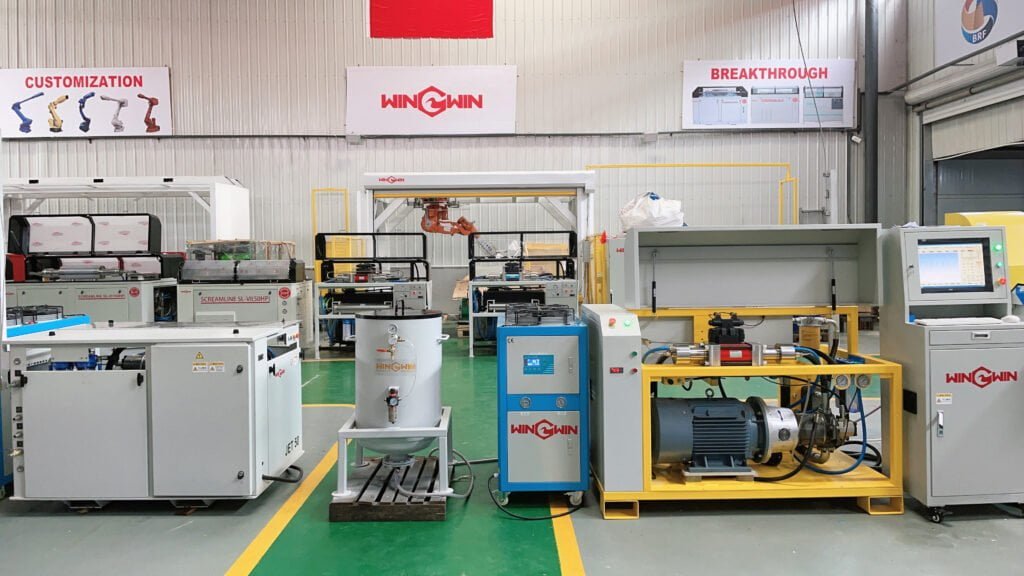
Précautions d’achat de découpe au jet d’eau usagé
Lors de l’achat d’un jet d’eau usagé et en tenant compte de la Coût de réduction du jet d’eau, there are also several issues to look out for that can affect the machine’s performance and longevity. Here are some issues to pay attention:
1. Wear and tear:
Over time, water jets can experience wear and tear on key components, such as the cutting head, pump, and high-pressure lines. Be sure to look over these components carefully and check if there is a tendency or condition for damage.
2. Maintenance history:
The machine’s maintenance history can provide important insights into its overall condition and performance. Make sure of asking for any available maintenance records and inspect them cautiously.
3. Operating hours:
The number of operating hours on the machine can also give you a sense of its overall condition and level of use. Be sure to ask the seller for this information and evaluate it in conjunction with the machine’s maintenance history.
4. Upgrades and modifications:
Some used water jets may have been modified or upgraded by previous owners. While these upgrades can be beneficial, they can also introduce potential issues or compatibility problems. Make sure to ask the seller about any upgrades or modifications and evaluate them carefully.
5. Compatibility with your materials:
Be sure to evaluate whether the machine is compatible with the materials you need to cut. This includes both the type of material and the thickness. Some water jets may be better suited for certain materials or thicknesses than others.
6. Electrical and water supply requirements:
Be sure to evaluate the machine’s electrical and water supply requirements to ensure that your facility can support it. This contains factors such as voltage, phase, and water quality.
7. Software compatibility:
If the machine comes with specialized software, be sure to evaluate whether it is compatible with your existing systems and whether you have the necessary expertise to operate it.
Conclusion
Overall, whether you’re looking to buy a new water jet cutting machine or used, or you’re not sure how to pick the right product, you’d better consult with a water jet expert or technician to help you evaluate your options, determine the best solution for your application and ensure that you’re getting a machine that is in good working condition. Hope the above introduction on waterjet cutting cost will help you to purchase the waterjet cutting machine that meet your needs.
